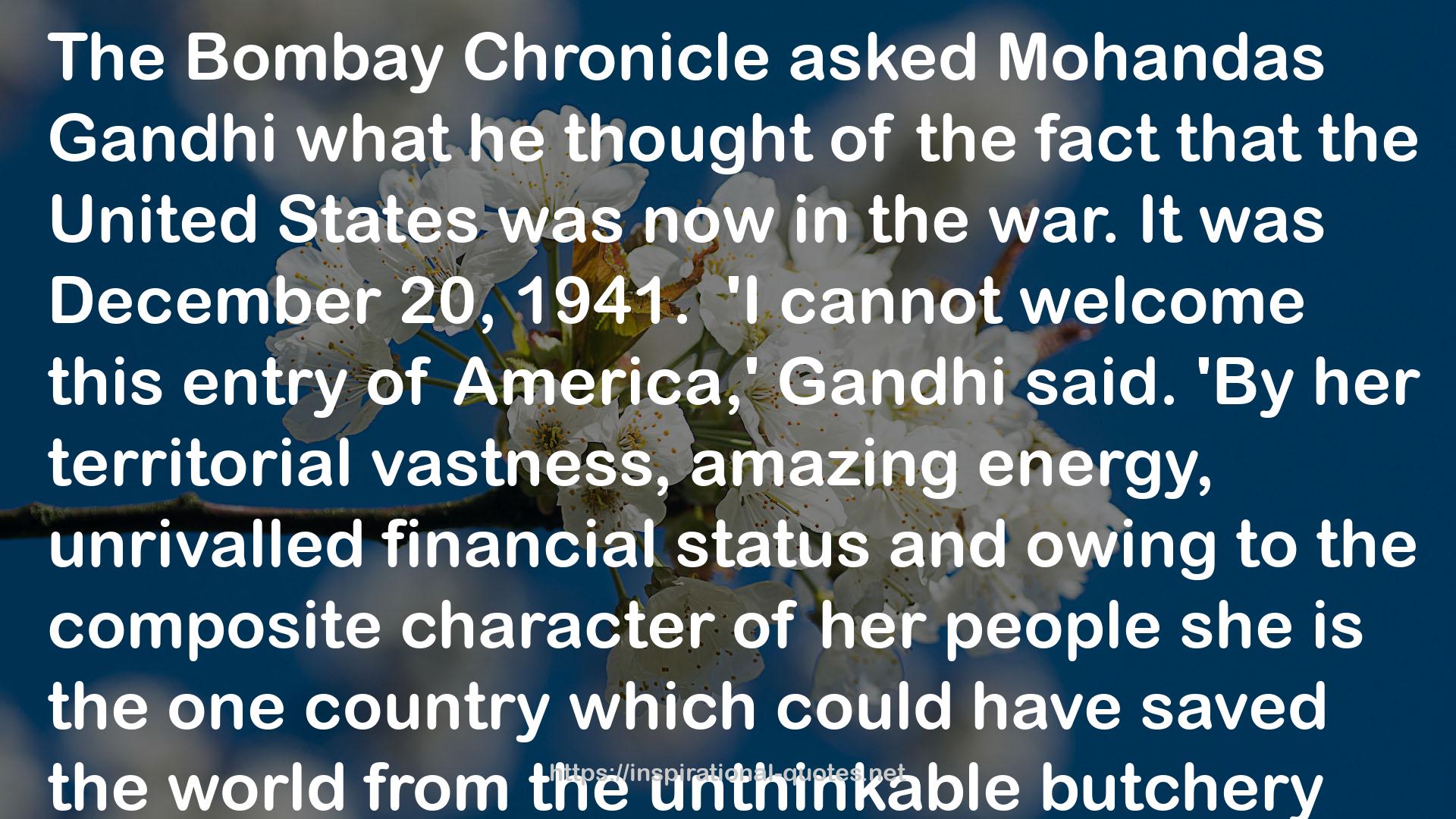" The Bombay Chronicle asked Mohandas Gandhi what he thought of the fact that the United States was now in the war. It was December 20, 1941.
'I cannot welcome this entry of America,' Gandhi said. 'By her territorial vastness, amazing energy, unrivalled financial status and owing to the composite character of her people she is the one country which could have saved the world from the unthinkable butchery that is going on.' Now, he said, there was no powerful nation left to mediate and bring about the peace that all peoples wanted. 'It is a strange phenomenon,' he said, 'that the human wish is paralysed by the creeping effect of the war fever.'
Churchill wrote a memo to the chiefs of staff on the future conduct of the war. 'The burning of Japanese cities by incendiary bombs will bring home in a most effective way to the people of Japan the dangers of the course to which they have committed themselves,' he wrote. It was December 20, 1941.
Life Magazine published an article on how to tell a Japanese person from a Chinese person. It was December 22, 1941.
Chinese people have finely bridged noses and parchment-yellow skin, and they are relatively tall and slenderly built, the article said. Japanese people, on the other hand, have pug noses and squat builds, betraying their aboriginal ancestry. 'The modern Jap is the descendant of Mongoloids who invaded the Japanese archipelago back in the mists of prehistory, and of the native aborigines who possessed the islands before them, Life explained. The picture next to the article was of the Japanese premier, Hideki Tojo.
In the Lodz ghetto, trucks began taking the Gypsies away. They went to Chelmno, the new death camp, where they were killed with exhaust gases and buried. It was just before Christmas 1941. "
― Nicholson Baker , Human Smoke: The Beginnings of World War II, The End of Civilization
